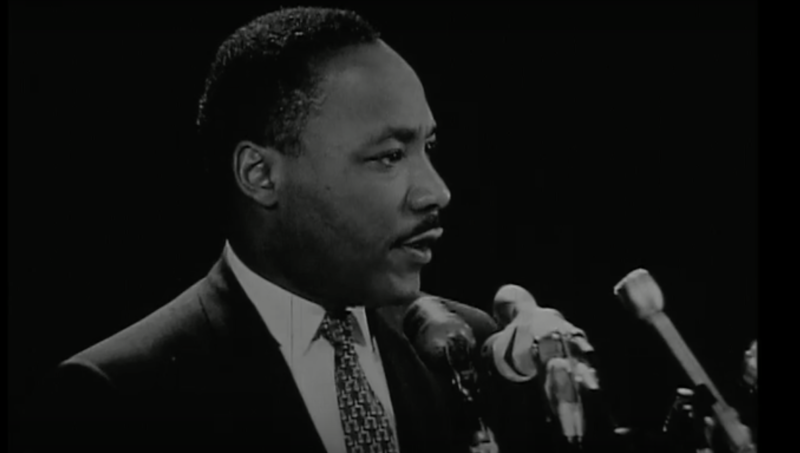Martin Luther King Jr.'s stands on human rights issues including poverty were not as well known as his civil rights issues, but have been well worth noting in remembrance of him, an expert on King's achievements told KQED.
Clayborn Carson, Stanford history professor and founding director of the university’s Martin Luther King, Jr. Research and Education Institute, said King visited the San Francisco Bay Area numerous times to speak on human rights issues in the last years of his life.
Since 1985, when he was chosen by Coretta Scott King to edit and publish the papers of her late husband, Carson has devoted most of his professional life to the study of King and the movements he inspired. The King Papers Project has produced seven volumes, and Carson has edited four additional books on King.
Carson said King was always a social gospel minister, concerned with human rights as much as civil rights. "He felt that basic citizenship rights were essential, but not sufficient," said Carson. "Education, health care, employment: Those are basic concerns of most people."
King's visits to UC Berkeley and San Francisco are well known but less so his 1967 talk at Stanford, entitled "The Other America.” His speech focused primarily on the evils of systemic racism and economic inequality. "Millions of young people grow up in the sunlight of opportunity, but tragically and unfortunately there is another America," said King. "This other America has a daily ugliness about it that constantly transforms the buoyancy of hope into the fatigue of despair," he told a rapt audience of students and faculty.
